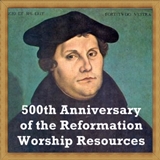Romans 3:23-24
“For all have sinned and fall short of the glory of God, being justified freely by his grace through the redemption that is in Christ Jesus.”
           Why are we here? It’s time for the sermon, message, lecture, speech;  but if you’ve been listening and receiving God’s gifts in this, His divine service, you’ve already heard all I might have to say. Rejecting pride in our public confession of our failures, those failures absolved and dealt with by God’s true Word restoring us from despair, the Word we pray in the psalm, and hear from the prophets, the apostles and Christ Himself, the creed we confess with His church, and soon the prayer we pray together with Christ.
but if you’ve been listening and receiving God’s gifts in this, His divine service, you’ve already heard all I might have to say. Rejecting pride in our public confession of our failures, those failures absolved and dealt with by God’s true Word restoring us from despair, the Word we pray in the psalm, and hear from the prophets, the apostles and Christ Himself, the creed we confess with His church, and soon the prayer we pray together with Christ.
All of us have sinned, even if you think you haven’t we all certainly fall  short of God’s glory. You can’t reach God by yourself, can’t best Him nor join yourself to Him. And yet He comes to you. Our rock and our redeemer, redeems you through the life, death and resurrection of Jesus Christ; freely justifying you, making you righteous, by grace, that wonderful free gift. We trust in Him and Him alone (John 11:; only name; ). This is what faith alone is.
short of God’s glory. You can’t reach God by yourself, can’t best Him nor join yourself to Him. And yet He comes to you. Our rock and our redeemer, redeems you through the life, death and resurrection of Jesus Christ; freely justifying you, making you righteous, by grace, that wonderful free gift. We trust in Him and Him alone (John 11:; only name; ). This is what faith alone is.
Or more simply, how do you know if Jesus saves you? We know because of what Jesus has done and said, and trusting Him we receive forgiveness from sin and life everlasting in Jesus. So look to Jesus, not yourself. That’s my job as a pastor pure and simple, to point you to Jesus. And that’s your job as a Christian to point others to Jesus. That’s the reason Luther, Melanchthon and the rest preached what they preached, wrote what they wrote. To point others to Jesus. To tell all people, to look not at themselves for their salvation, not to their money that bought indulgences, not to their charity, prayer, or fasting, not their church membership, their decision or any other work; rather to only rely on Jesus Christ, on His promise of forgiveness and life, on His work of defeating sin, death and the devil, in His life, death and resurrection. To live by the first commandment.
And this is why our tradition still exists, why our synod is here, why it’s Prussian ancestors came over; that we treasure Christ’s teaching. The truth that sets us free (John 8:31-36).
But if we have the truth, what about others? Weeks ago we heard Paul call us ‘to be the bee’, as I said (Philippians 4:8-9); and so when you speak to other Christians, to those outside the church, even those here in our parish; we need to remember these words of Paul and focus not on the evil or corruption we see in other teachings or practises, rather to meditate and dwell on what is true and wonderful in our own, even perhaps in theirs. Luther’s last written words, “we are beggars, this is true.†We can do nothing good by yourself (Romans 8:8; 1 Corinthians 2:11-15). You are helpless, yet Jesus helps you (Psalm 40:1-5). In His great mercy He recognises that us poor humans need something sure, so He condescends and ties His mighty Word, that brought creation into being, ties it to simple water, bread and wine, even to the words of another miserable sinner, the pastor. When you forgive sins, they are forgiven (Matthew 18:18); you can trust Jesus at His Word to you through me, because He is trustworthy. Don’t look to the pastor for your salvation, every one is a beggar like you, rather look to Christ and His promise recorded and preserved for you by the Holy Spirit down through His Holy Church. As Jesus says, “do not doubt but believe†(John 20:27), because it is Christ who justifies, who makes righteous, good and straight; and He is true (John 14:6).
Don’t reject His word and, being proud and arrogant, confident in thinking yourself righteous by your own strength, you are a helpless beggar, hear Jesus’ Word and know it to be true. Then when you fall into despair in your life, into depression, anxiety, suffering, guilt or shame; hold onto these words of Jesus, “I forgive you all your sinsâ€, and know that He has promised this to you, His Word is sure. Now, our trust in Christ may not take away our despair immediately, the Holy Spirit may wait, yet Jesus says, blessed are those who believe without seeing (John 20:29). Yet still we cry out with the psalmists, Lord have mercy (Psalm 123:3; Luke 18:13). Jesus Christ you take away the sin of the world, have mercy on us and grant us your peace!
And if you doubt my words as a Pastor, Christ’s promise is still there for you, for He promises in your baptism, your sin is washed away as dirt in a river. This is something that can be seen, felt and held onto; your baptism cannot be taken away, just as the Holy Spirit’s baptismal promise to be with you, to kill your sinful self and bring you into new everlasting life in Christ cannot be taken away, only rejected. You have been united to Christ, betrothed to Him in His bride, the One, Holy, Catholic and Apostolic Church. As in our marriages united and sharing all things, He receives our sin and death destroying them on the cross, we receive His righteousness, holiness and everlasting life (1 Corinthians 1:30, 1 Peter 2:24). Yet together with all Christians, we wait for the wedding feast and the consummation of our marriage at the end of this broken world (Revelation 19:6-8, 21:2-4).
The wedding feast that we have a foretaste of in Holy Communion. So if you struggle with the words of the Pastor, ‘are they for you?’ struggle with the gifts of your baptism so long ago, Christ our bridegroom has tied His promise of union, forgiveness and life everlasting, to one more thing. Bread and wine. Not just His Words, He gives His own resurrected and glorified body and blood to you in our thanksgiving meal. “My blood of the New Covenant,†as prophesied by Jeremiah, “for the forgiveness of all your sins†(Jeremiah 31:31-34; Luke 22:20; Matthew 26:28). We can say that we hold our Creator and Redeemer in our hands, that you receive God’s forgiveness and everlasting life on your tongue, that by this Most Holy and precious Communion we are united, together in His Church, with Jesus Christ our Lord and Saviour. No one can take His promise from you, and as your pastor I must always be ready to bring you these precious gifts, these means of grace.
God offers you peace and joy through these means of grace, I pray that we all receive them well and so live in that wonderful light of Christ knowing that salvation is not about me, rather it is Christ. We do not look to a few syllables of a pastor in a dress, or to only water, or to just wafer and wine, as other Christians might accuse us. We look only to Christ Jesus, who in His great mercy promises His righteousness and life to you through the means He has ordained, not costly certificates, not specific clothes, not marvellous music, but simple water, a few words, a bit of bread and a sip of wine. No need to look anywhere else, but by faith to see Christ where He has promised to be. Why are we here? To point ourselves and others to Jesus.
And the peace of God which surpasses all understanding guard your hearts and minds in Christ Jesus, now to life everlasting with our bridegroom and our King. Amen.
Pastor Joseph Graham.